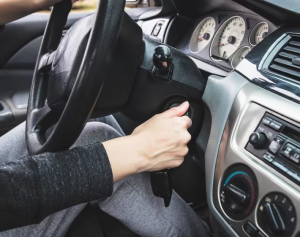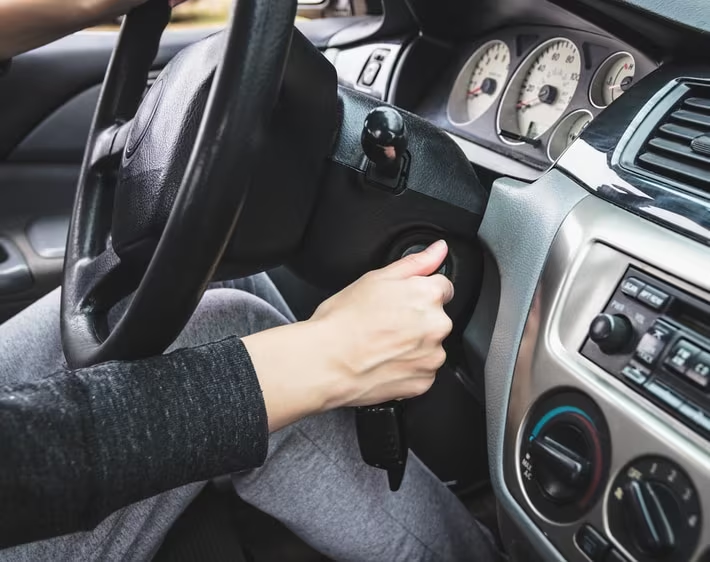Experiencing a car that won’t start can be a frustrating ordeal. It’s a situation that can arise without warning, leaving you stranded and perplexed. Understanding the potential causes can help you diagnose the issue or explain the problem to a mechanic. Here are some of the most common reasons why your car might not start:

1. Battery Issues
The battery is the heart of your car’s electrical system, and a flat, faulty, or dead battery is the most frequent culprit behind starting problems¹. Batteries can fail for several reasons:
Electrical drains: Leaving lights or electronics on when the car is off can deplete the battery.
Lack of use: Not driving your car for extended periods can lead to a loss of charge.
– **Component failure**: A fault in the battery itself or its connections can prevent it from functioning.
2. Starter Motor Failure
The starter motor is responsible for turning over the engine when you ignite the car. If you hear a single loud click but the engine doesn’t start, the starter motor might be the issue¹.
3. Fuel Delivery Problems
For an engine to run, it needs fuel. Problems with the fuel pump, injectors, or filter can prevent fuel from reaching the engine. Additionally, using the wrong type of fuel can cause significant issues¹.
4. Electrical or Wiring Issues
Cars have complex electrical systems, and any faults in the wiring, fuses, or control units can lead to starting problems. Rodents can sometimes chew through wires, especially if the car hasn’t been used for a while¹.
5. Engine Mechanical Problems
Mechanical issues with the engine itself, such as a broken timing belt or issues with the crankshaft, can prevent the car from starting. These problems often require professional diagnosis and repair¹.
6. Ignition System Faults
The ignition system, which includes spark plugs and ignition coils, is essential for starting the engine. Faulty components can prevent the engine from firing up².
7. Security System Malfunction
Modern cars have sophisticated security systems that can sometimes malfunction and prevent the engine from starting as a protective measure.
8. Extreme Weather Conditions
Both hot and cold weather can affect your car’s ability to start. Batteries, in particular, are susceptible to temperature extremes¹.
If your car won’t start, it’s essential to consider these common issues. However, diagnosing car problems can be complex, and it’s often best to consult with a professional mechanic. Regular maintenance can help prevent some of these issues and keep your car running smoothly.
Car That Won’t Start In The Middle Of Nowhere, Here Are Some Steps You Can Take
- Check the Basics:
- Battery Connection: Inspect the cable connections at the battery. Twist and turn them by hand; if they move, the connection is loose. Clean the terminals and reconnect.
- Jump Start: If the battery is dead, try jump-starting your car using cables and another vehicle. Follow proper jump-start procedures.
- Dashboard Lights On, No Sound:
- Ensure the car is in park or neutral. Try moving the gear to neutral and starting again.
- If the issue persists, it could be a faulty starter motor or ignition switch. Call for a tow and visit a repair shop.
- Engine Makes a Clicking Sound:
- Turn on the headlights. Bright lights indicate a good battery; dim lights suggest a weak battery.
- If the battery is weak, try a jump start.
- Normal Cranking, But Engine Won’t Fire:
- Check your fuel level. You might be out of gas.
- For older cars with carbureted engines, a flooded engine can cause starting issues. Hold the gas pedal down while cranking to clear excess fuel.
- Verify the fuel pump or ignition circuit fuses. Replace any blown fuses.
- Slow, Dying Crank:
- A weak battery could be the culprit. Attempt a jump start.
- Visit a mechanic promptly to address the issue.
Remember, safety first! If you’re stranded, consider calling for professional assistance. 🚗🔧



1 thought on “8 Troubleshooting hacks For Car That Won’t Start”